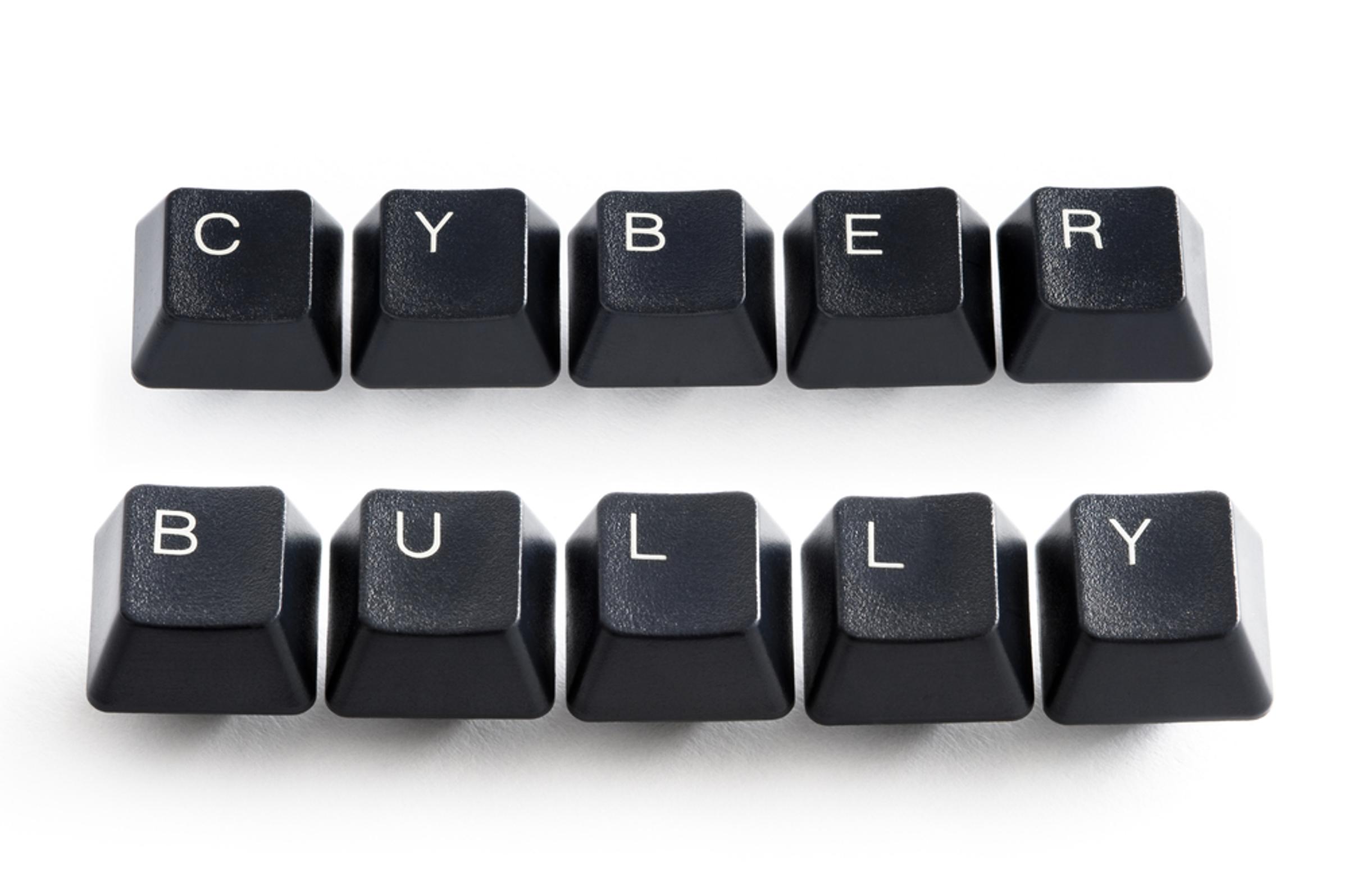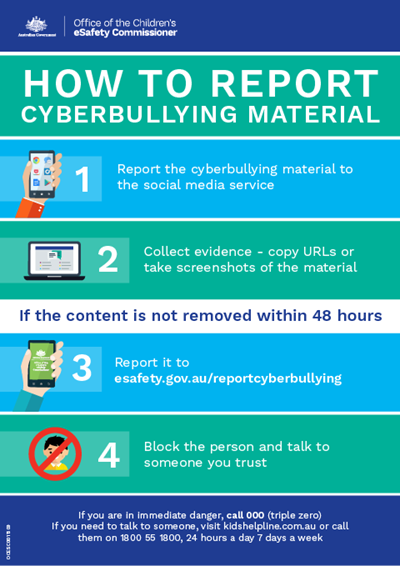From The Counselling Suite

Cyberbullying
Last Friday, Ms Cathie Oswald (School Counsellor) and I attended the Mental Health and Wellbeing Conference for School Counsellors and Psychologists. A staff member from the Australian Government Office of the eSafety Commissioner presented at the conference about cybersafety for students. The presentation was very informative and included detailed discussions of specific cases in which students experienced and reported cyberbullying to the Office and how it was addressed. It was particularly impressive how prompt the Offices’ responses to complaints about cyberbullying were in all of the cases, including how quickly offensive material was removed from sites.
The following article is from the Government Office of the eSafety Commissioner website, and includes details about how to tell if your child is being cyberbullied and what steps can be taken to address this.
How do I know if my child is being cyberbullied?
The internet can open a world of connectivity and learning for young people, but to help them have enjoyable online experiences, it is critical that you are attuned to any signs of cyberbullying.
These can include:
- being upset after using the internet or their mobile phone
- changes in personality, becoming more withdrawn, anxious, sad or angry
- appearing more lonely or distressed
- unexpected changes in friendship groups
- a decline in their school work
- changes in their sleep patterns
- avoidance of school or clubs
- a decline in their physical health
- becoming secretive about their online activities and mobile phone use.
What are the steps to alleviate the bullying?
Start a conversation and seek support
- If your child shows any of these signs, or other worrying and out of character behaviours, it is important that you talk with them and maintain a close eye on both their online and offline behaviour and keep them connected to supportive friends and family. There is help at hand if your child is being cyberbullied and plenty of constructive ways to help your child take control of the issue.
- If cyberbullying involves another student, talk to your child’s school (ie. Key Teacher, Head of House, Leadership), as school staff can help to manage the issue.
Open the lines of communication
- Open communication is so important, whether directly with you or a trusted adult they may feel more comfortable opening up to. This could be an aunt, older sibling or grandparent. Keep the focus off the situation by also encouraging your child to do something offline that they enjoy. Reassure them that you won’t block their access to the internet because they have reported a problem to you.
Collect the evidence and report
There are a number of ways to collect appropriate evidence and report cyberbullying:
- report the cyberbullying to the appropriate service provider using their reporting tools and ask for content to be removed
- lodge a complaint about a serious cyberbullying matter with the Office of the Children’s eSafety Commissioner via the online complaints form
- use our tips to keep a record of offending emails, text messages or online conversations.
Manage contact with others
Simple, practical steps can be taken to help manage the issue in the short term, including:
- advising your child not to retaliate or respond to any messages from a bully, which may prevent material being further used against your child
- blocking or unfriending the bully to stop contact with your child
- helping your child change their privacy settings to restrict who can see their posts and profile page.
For more information about cyberbullying, you can have a look at the Government Office of safety website: https://www.esafety.gov.au/
If your child has been subjected to cyberbullying or you think they may be cyberbullying a peer, they may benefit from some counselling support. You can contact the School Counselling service by emailing counselling@bps.sa.edu.au or by contacting Ms Cathie Oswald (8169 3904) or Dr Lucinda Clifford (8169 3907).
Dr Lucinda Clifford
School Psychologist
Ms Cathie Oswald
School Counsellor

